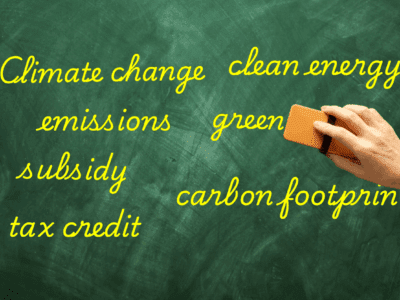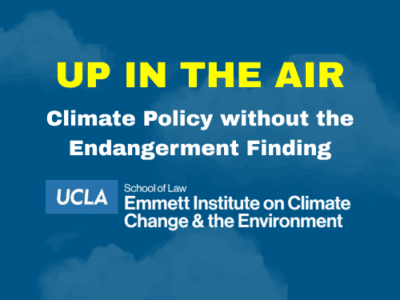First Monday? More Like ‘First Moanday.’
Since conservatives got a supermajority on the Supreme Court, it’s been on an anti-environmental tear.
As Court watchers know, the first Monday in October is the first day of the Supreme Court term. If you believe in federal protection of the environment, however, the start of a new term isn’t exactly grounds for rejoicing. The more natural reaction is a moan. About the best you can hope is that the Court won’t wreak too much damage on environmental law. Luckily, at this point, the Court doesn’t have any significant environmental cases on its agenda.
In the last three years, the Court has delivered a series of hammer blows to environmental protection. First there was West Virginia v. EPA. To almost everyone’s surprise, the Supreme Court decided to review the legality of the 2015 Obama Clean Power Plan, his signature climate measure. The reason for the surprise was that everyone knew that the Obama plan was a dead letter, long since overtaken by events. But the Court couldn’t resist the temptation to kick a dead horse. In the process of doing so, it made clear its skepticism about EPA’s power to creatively address major new problems such as climate change.
Next came the Sackett case. Here, the Supreme Court blithely a view of wetland protection that rejected regulations by Administrations of both parties dating back decades. Instead, it limited federal power to protect wetlands far more than even Trump had wanted in his first Term.
And then, the Court decided the Seven County Infrastructure case last summer. Justice Kavanaugh’s majority opinion complained at length that courts had become altogether too serious about environmental impact statements. Instead, he said, agencies should be given great leeway to decide what environmental impacts to discuss and how much. Again, it was surprising that the Court took the case since the lower courts had found other, unrelated legal flaws in the government’s approval of a new train line. Longstanding rulings interpreting NEPA were suddenly cast into doubt.
When the Court agreed to hear each of these cases, everyone knew which side would win. The only question was how much damage the Court would do in the process. In each case, the Court went well out of its way to issue a broad ruling imperiling environmental regulations. So, if you care about environmental protection, it’s bad news that the Supreme Court is back in session.
Never say never. Maybe someday the current Court will surprise us with a big win for the environment. But it would be foolish to count on that. We can also hope that the Court will do other good things, such as reining in Trump’s executive overreach. But it would be foolish to view the current majority as being in any way believers in environmental protection.







Intellectuals/Academics should have protected our civilization before Trump was elected the first time. Instead you became the worst case leadership failure in the history of the human race by failing to meet the challenges of change/climate change with the greatest sense of urgency.
Finger pointing instead of getting solutions implemented and calling the public too “Impure” to communicate with are two of your greatest failure modes.